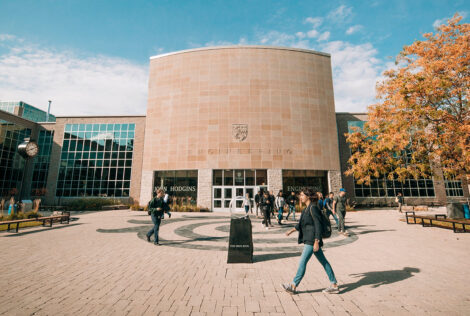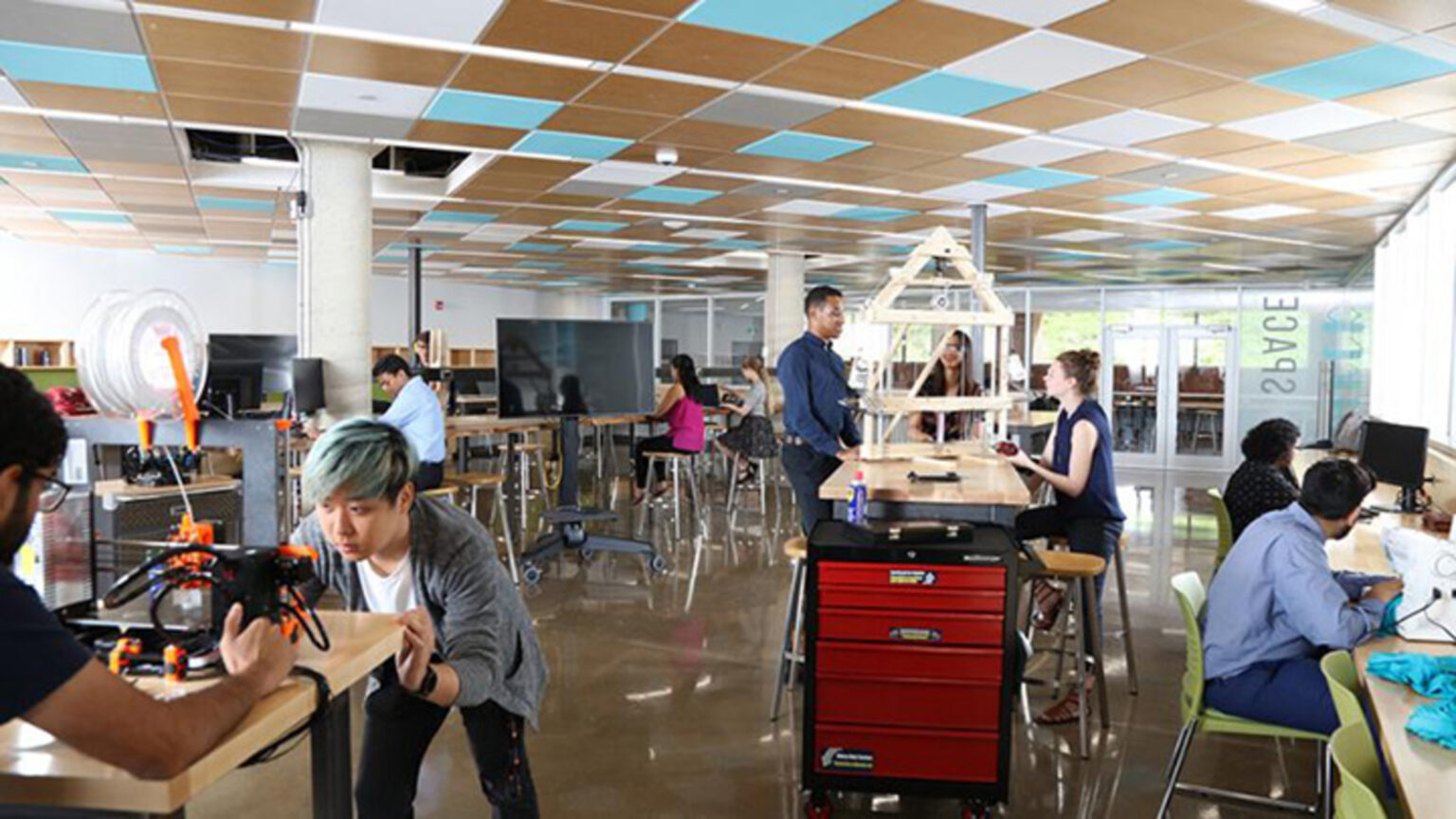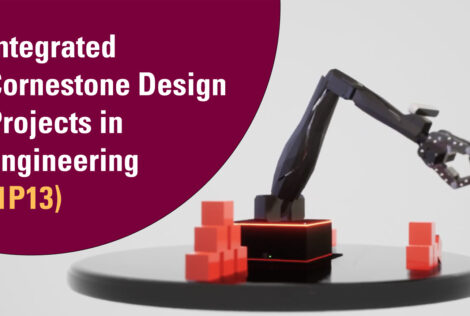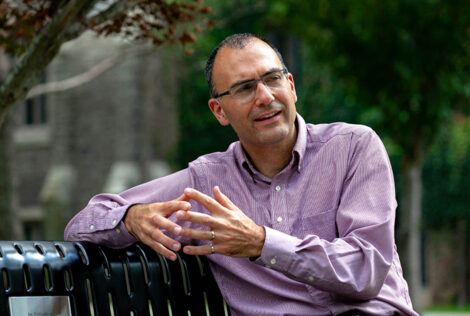

Aspiring innovators from all Faculties have a new experiential learning space on campus where they can create, collaborate, and experiment with a range of technologies.
The newly launched Thode Makerspace, a partnership between McMaster University Library and the Faculty of Engineering, offers students, faculty and staff from all disciplines a space to learn technical skills, develop new technologies and work collaboratively, while sharing ideas, equipment and knowledge.
Located on the lower level of Thode Library, the Makerspace provides access to a variety of high and low-tech tools and technologies as well as hands-on workshops and training for all skill levels. The facility will also connect students to experts and mentors at McMaster’s start-up incubator and entrepreneurship initiative, The Forge.
McMaster University Librarian, Vivian Lewis says she hopes the Makerspace will serve as a place for learning and experimentation, where students share knowledge and work collaboratively across disciplines.
“I think this Makerspace is quite extraordinary,” says Lewis. “We tend to think of makerspaces as high-tech machine shops, spaces for technological experimentation and idea prototyping, but this is also a place where students from all parts of campus can come together to learn and to build – a space where humanities students can partner with students from science or business or social sciences. It’s intended to be a truly interdisciplinary space.”
“Innovation happens when Engineers collide and collaborate with people from other disciplines,” says Ishwar K. Puri, Dean of McMaster’s Faculty of Engineering. “Over the past few years we’ve really invested in building collision spaces like the Makerspace. You need community spaces where people can come and create and work on problems in an interdisciplinary way. That’s the kind of vibrant atmosphere we want to provide for students.”
The Makerspace will offer a range of equipment including 3D printers, a variety of hand tools, components for building electronic circuitry, a drill press, grinders, soldering stations, a laser cutter and even a chip setter that will enable students to make computer chips. Going forward, equipment will added based on needs identified by the students using the space.
The facility will be open to students on a drop-in basis and will be available to groups on campus who need a space to work on technology-based projects. Programming will include talks by Hamilton start-up entrepreneurs organized in partnership with The Forge, as well as other skills development activities and networking opportunities for students.
Colin McDonald, Associate Professor of Mechanical Engineering and Director of Engineering I, helped to design the Makerspace and has already brought students into the facility to “play.”
“We need spaces where students can tinker and to be exposed to things that they might not otherwise get to be exposed to,” says McDonald. “A space like this gets students thinking and brainstorming out of the classroom. It takes students who have a common way of thinking amongst their peers and gets them thinking a little bit differently. When people who think differently collaborate, you get more innovative solutions. That’s one of the big benefits of a space like this.”


